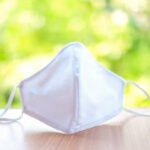How Cotton Products Contribute to Infection Prevention in Healthcare Settings
- July 4, 2023
- Posted by: Admin
- Category: Surgical Cotton

Introduction: Infection prevention is a critical aspect of healthcare, and healthcare professionals employ various strategies to minimize the risk of infections in healthcare settings. One often overlooked but highly effective component in infection prevention is the use of cotton products. In this article, we explore how cotton products contribute to infection prevention in healthcare settings, highlighting their inherent properties and their role in creating a safer and cleaner environment for patients and healthcare providers.
Natural Absorbency and Moisture Management: Cotton is renowned for its exceptional absorbency, making it an ideal material for managing moisture in healthcare settings. Cotton products, such as gauze, pads, and dressings, effectively absorb excess moisture from wounds or areas prone to moisture accumulation, minimizing the growth of bacteria and other microorganisms. By maintaining a dry environment, cotton products help reduce the risk of infections, particularly in surgical sites or wounds requiring ongoing care.
Promoting Proper Ventilation and Airflow: Proper ventilation and airflow are crucial in preventing the buildup of bacteria and controlling the spread of infections. Cotton’s inherent breathability allows for air circulation, aiding in the removal of moisture and reducing the risk of bacterial colonization. Cotton-based products, such as clothing, bedding, and masks, promote proper ventilation, helping to maintain a clean and hygienic environment for patients and healthcare providers.
Hypoallergenic and Non-Irritating Properties: Allergies and skin irritations can compromise infection prevention efforts. Cotton, being a natural and hypoallergenic material, minimizes the risk of allergic reactions or skin irritations, making it suitable for individuals with sensitive skin or prone to allergies. Cotton products provide a gentle and non-irritating surface, reducing the likelihood of skin breakages or disruptions that could lead to infections.
Ease of Cleaning and Sterilization: Maintaining cleanliness and sterility is essential in healthcare settings to prevent the spread of infections. Cotton products, such as towels, linens, and clothing, are relatively easy to clean and sterilize. They can withstand high-temperature washing, ensuring effective removal of contaminants. Properly laundered and sterilized cotton products contribute to the overall cleanliness of the healthcare environment, minimizing the risk of cross-contamination.
Sustainable and Environmentally Friendly: Cotton is a sustainable and environmentally friendly material, making it an excellent choice for infection prevention in healthcare settings. Organic cotton options further reduce the use of chemicals in the production process, supporting a greener and more sustainable approach to infection prevention. By incorporating sustainable cotton products into healthcare practices, healthcare providers contribute to the overall well-being of both patients and the environment.
Conclusion: Cotton products play a significant role in infection prevention in healthcare settings. Their natural absorbency, ability to promote proper ventilation, hypoallergenic properties, ease of cleaning and sterilization, and sustainability contribute to a cleaner and safer environment for patients and healthcare providers. By recognizing the valuable contribution of cotton products and incorporating them into infection prevention protocols, healthcare professionals can enhance their efforts in reducing the incidence of healthcare-associated infections and promoting optimal patient care.





